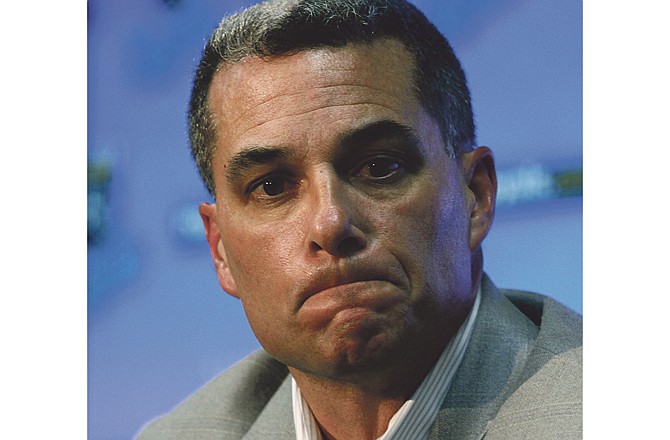KANSAS CITY (AP) - Goodbye, Johnny Damon. So long, Carlos Beltran. See ya later, Jermaine Dye. And now, adios, Zack Greinke.
Greinke, the 2009 AL Cy Young winner, became the latest in a long line of All-Stars who insisted on leaving the Kansas City Royals in the prime of their careers when he was traded Sunday to Milwaukee. For some, it's been money. For others, including Greinke apparently, the drive to depart was spurred by a thirst to compete.
The Royals bowed to Greinke's demand because he was not satisfied that a bevy of young talent working through the minor leagues would be ready to win by the time his contract ran up in 2012. So he got out, just like Damon, Beltran and Dye, who all went on to star for big-time winners in Boston, New York and Chicago.
"The history of these deals will tell you you're not going to get another Cy Young Award winner and you're not going to get players who are going to compete for the MVP," Royals general manager Dayton Moore said. "But what we tried to do was get the right players that fit with who we are and what we have coming.
"The bottom line is we win more games in the future and this puts us in a better position to win in 2012."
By then, the Royals are planning for the first wave of promising players to be ready to start winning in the majors. They include first-round picks Mike Moustakas at third base and Eric Hosmer at first base, and several pitchers who are showing well in their journey up through the minor leagues.
"We would love to be sitting here discussing a long-term contract with Zack Greinke," Moore said Sunday, shortly after the blockbuster deal was announced. "You want to hold onto your best players forever. That's a formula for winning championships as well, but there has to be a willing partner."
Moore had signed a long-term contract with Greinke that took him through 2012. But the desire to get out was enough to cause the sometimes-moody right-hander to waive the no-trade clause in his contract that would have enabled him to veto a deal with certain clubs, including the Brewers.
Moore got in return four players he feels will blend well with KC's long-term plan - shortstop Alcides Escobar, outfielder Lorenzo Cain and right-handed pitchers Jake Odorizzi and Jeremy Jeffress. The Royals also sent the Brewers shortstop Yuniesky Betancourt and "cash considerations."
Escobar, 24, hit .235 with 14 doubles, four home runs, 10 triples and 41 RBI for the Brewers last year in his first full year in the majors. The 10 triples set a franchise record for a rookie.
Cain, 24, hit .306 with 11 doubles, one home run and 13 RBI in 43 games for the Brewers last year. Moore said he will compete for the center field job with Melky Cabrera, who was acquired just a few days ago.
Odorizzi, 20, was the Brewers' minor-league pitcher of the year in 2010 with a 7-3 record and a 3.43 ERA in 23 appearances for Single-A Wisconsin in the Midwest League.
Jeffress, a former first-round pick in 2006, missed the start of the 2010 season while finishing a 100-game suspension for testing positive a second time for marijuana.
"We got a young shortstop and a young center fielder and a great-looking young pitcher in Jake Odorizzi and a right-handed pitcher who we feel his troubles are behind him," Moore said. "He's got a terrific arm."
One All-Star the Royals appear to have locked up is Joakim Soria, one of the major leagues' top closers. Moore said he understands fans' frustration when so many other good players keep hurrying out of town.
"We understand and recognize the importance of signing our best players to long-term contracts and we'll always look to do that," he said. "But at the same time, there comes a point within the negotiations and the discussions that it's rather apparent that the player does not want to be here long-term, it makes the most sense for your baseball team and your fan base to move forward and make a deal that will potentially make your team better in the future."

